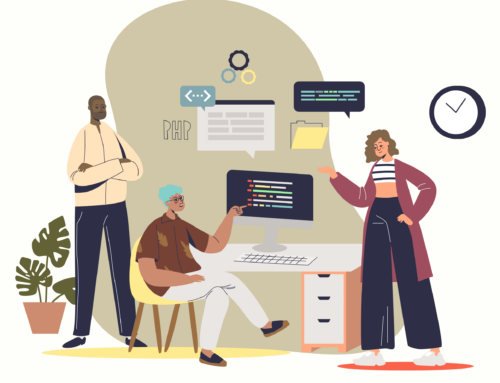98% of companies in the training industry use a healthcare learning management system (LMS), and this applies to most healthcare organizations that keep up with policy changes, industry fluctuations, and for onboarding new staff. This is to simplify training and onboarding processes, but the advantages of utilizing an LMS don’t stop there.
The problem is that at least 2 of every 3 employers don’t have an actual structured process for onboarding. Often, healthcare businesses are continuously falling victim to the most common onboarding challenge: inefficient and inconsistent processes.
Using an LMS eliminates these hurdles. Keep reading to find out what you can expect for your business if you have access to the “right” LMS product.
Understanding a Healthcare LMS
A Healthcare Learning Management System (LMS) is a frequently sought-after software application that is specifically tailored to facilitate the creation, delivery, continuous management, and consistent “real-time” tracking of training programs within a variety of healthcare settings.
Not all LMS software solutions will be applicable to your business and the training needs of your staff, but with more than 800 LMS products currently on the market, a lot of training coordinators and compliance officers aren’t sure how to identify the right product for their needs.
How to Tell if an LMS Product Is Right for You
As a centralized suite for your organization’s training needs, you want to consider the training features that should be centrally available to your staff and training team. Look for products that provide more options than generic LMS products:
- Cross-functional training assignment capabilities
- Real-time progress tracking
- Scalability
- Simplicity of training material designed to enhance content retention
You want to consider your healthcare LMS solution an actual strategic asset because that’s what it’s designed to be. This type of product helps maintain regulatory compliance, enhance the long-term efficiency of your operations, and provide standardization in the training you assign your staff. As healthcare continues to evolve rapidly, your business needs an LMS solution that evolves alongside the industry as well.
Why Your Business Needs Healthcare LMS Software
Compliance officers are working more closely with healthcare LMS vendors today because many are becoming more well-versed in the advantages of this type of technology. LMS software is a flexible option that streamlines education standardization and reporting measures and customizes learning paths for employees more easily.
Not to mention, using an LMS for healthcare means that you are setting yourself apart from your competition because you are now speeding up the time to properly complete onboarding, and you can more easily track the development of your employees while also providing knowledge retention.
Additionally, some of the more popular reasons that compliance officers are working with healthcare LMS vendors is to tap into certain features:
- Training expenditure reduction
- Converting manual learning strategies to e-learning
- Enhancing compliance via providing consistently up-to-date training with no learning curve for customization
Healthcare LMS software has two primary functions: to deliver employee training and to reduce costs for that training. While all LMS products have the same core functions, the best LMS for healthcare will provide high-quality e-learning solutions and features that directly apply to your organization and the scope of your staff.
Choosing the Best LMS for Healthcare
Close to 60% of healthcare-based businesses lack quality methods for evaluating their employee’s training. The success of healthcare organizations is heavily reliant on the initial and continued training of staff, and businesses often need help to navigate this properly. One issue is identifying the right LMS and leveraging its features. An LMS in healthcare enhances staff development and retention, increases compliance, and lessens the opportunity for preventable noncompliance incidents.







